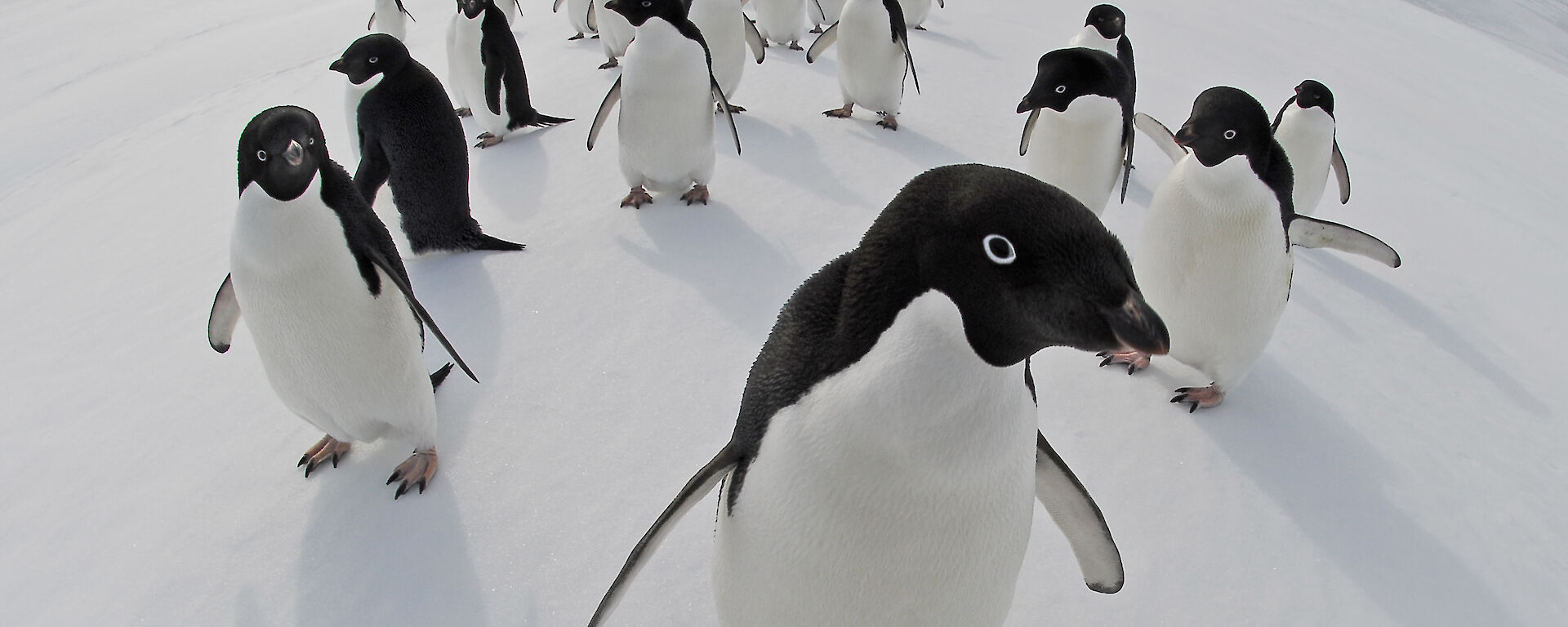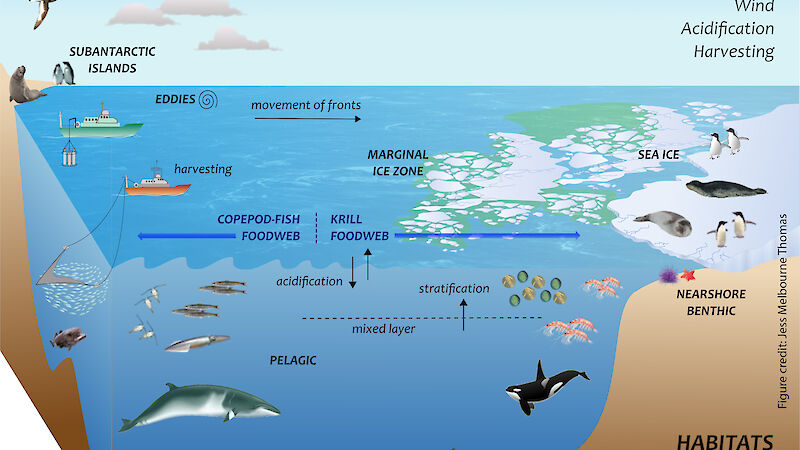The Australian Antarctic Division helps further the objectives of CCAMLR, by providing science on which policy and management decisions can be based.
Australian Antarctic Division research that contributes to CCAMLR primarily addresses the conservation of Antarctic wildlife and the sustainable management of Southern Ocean fisheries.
These research programs follow an ‘ecosystem approach’. This means that all living resources of the Southern Ocean (such as krill and finfish) are treated as an integrated system. Effects on predator, prey and related species are all considered, so that decisions on sustainable harvesting levels can be based on sound scientific advice.
Australian Antarctic scientists conduct strategic research into issues such as stock assessment of fish and krill populations, incidental mortality of seabirds in long-line fisheries, ecosystem monitoring, the development of novel techniques to examine ecosystem interactions, ecosystem modelling and research into the life history parameters of harvested and dependent species. These science initiatives have significantly contributed to CCAMLR’s development of procedures, enabling the commission to make informed ecosystem management decisions.
Much of the scientific information provided to CCAMLR assists in the development of conservation measures. These measures regulate activity in the CCAMLR region of the Southern Ocean according to a precautionary approach. Conservation measures under CCAMLR:
- establish protected species
- set precautionary catch limits
- identify fishing regions
- regulate when fishing may occur and what fishing methods can be used
- establish fisheries inspection procedures
Australia’s Antarctic scientific research program is the prime source of information to CCAMLR on the marine ecosystem of East Antarctica.



